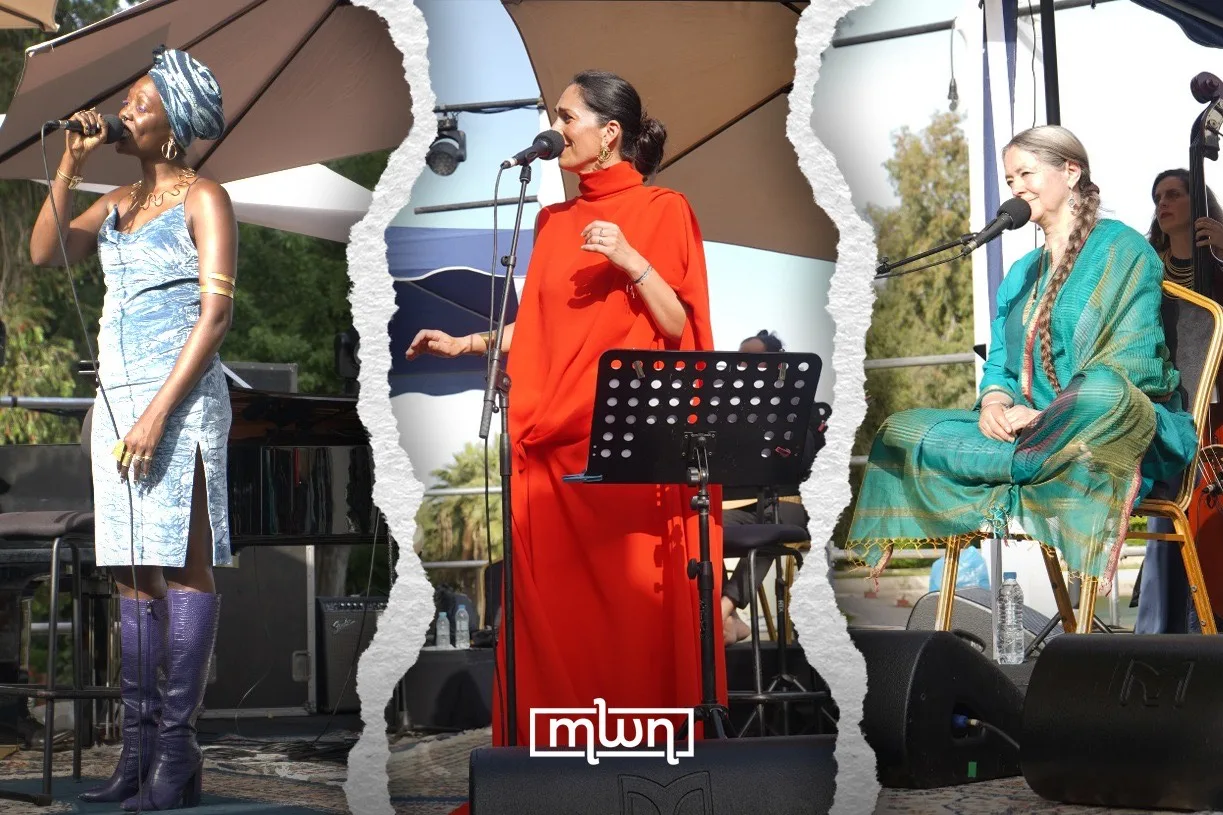Home > Fez > ‘4Femmes’ Ensemble Uses Sacred Music as a Universal Cry for Women’s Rights at the Fez Festival
Yesterday, leading the ensemble “4Femmes,” mezzo-soprano and composer Ariana Vafadari and her troop delivered an unforgettable performance.
Fez – Fez’s ancient Jnan Sbil garden became a stage for a powerful women’s rights musical manifesto at the 28th edition of the Fez World Sacred Music Festival.
Yesterday, leading the ensemble “4Femmes”, mezzo-soprano and composer Ariana Vafadari and her troop delivered an unforgettable performance. She ignited a conversation on the global struggle for women’s rights through the transcendent power of sacred music.
In an exclusive interview with Morocco World News (MWN), Vafadari shared the emotional weight behind her return to Fez, a city she calls her “spiritual home.”
The festival, known for bridging cultures through sacred sounds, provided the perfect setting for her latest work, a fusion of ancient myth and modern resistance.
A project born from pain and hope
For Vafadari, 4Femmes is not just a musical piece. It’s a cry against the erosion of women’s rights worldwide. Inspired by real testimonies from Afghanistan, Iran, and beyond, the project reimagines the myth of Medea, transforming her from a tragic figure into a symbol of defiance.
“These are stories of women facing poverty, violence, and oppression,” Vafadari told MWN, her voice trembling with conviction. “But it’s also about their resilience, how they reclaim their voices despite everything. Sacred music isn’t just about tradition; it breathes, it lives. When we perform, something magical happens. Women from different worlds, different languages, different wounds, suddenly recognize each other. That’s transcendence.”
The lyrical monologues, penned by Atiq Rahimi (award-winning author and filmmaker), knot together personal narratives into a collective plea for justice. “Medea refuses to be a bargaining chip,” Vafadari explained. “She escapes her fate. That’s what we’re singing about, women who refuse to be silenced.”
Sacred sisterhood
For Marianne Svasek, a Dutch singer specializing in the rigorous tradition of Dhrupad (an ancient form of Indian classical music), joining 4Femmes was a revelation. Known for her solo performances, she found unexpected freedom in this cross-cultural collaboration.
“Normally, I sing classical music, and it’s very strict,” Svasek admitted in an interview with MWN.
“But here, collaborating with different styles and these incredible female voices, I discovered another side of myself. It’s not just about technique; it’s about emotion, about truth.”
When asked how she channeled the project’s heavy themes, stories of war, displacement, and survival, Svasek paused, then replied: “It feels different, deeper, singing with women about women’s lives. You can’t just perform these stories; you have to live them in the music. There’s a responsibility in that. And in Fez, with its sacred energy, it becomes even more powerful.”
Svasek described performing at the festival’s opening night as electrifying, but she was especially moved by their garden performance. “The city feels alive, like India’s sacred spaces. Singing surrounded by nature, it’s a different kind of magic.”
Vafadari’s vision for a global sisterhood
The seeds of 4Femmes were planted years ago when Vafadari met members of the Asian University for Women in Bangladesh, an institution offering free education to women from across Asia.
“Their stories stayed with me,” she said. “Music creates bridges, between eras, spiritualities, and people. That’s what we’re doing here.”
Trained at the Paris Conservatory yet deeply rooted in her Persian Zoroastrian heritage, Vafadari’s artistry defies categorization. Her compositions blend Persian classical music, jazz, and electronic soundscapes, creating what she calls “sonic epics”, where ancient wisdom speaks to modern struggles.
“Fez is the perfect place for this,” she reflected. “The festival isn’t just about preserving traditions; it’s about letting them evolve, letting them speak to today’s world.”
As 4Femmes left the stage, the echoes of their performance lingered. In a time when women’s rights are under siege globally, Vafadari’s message was clear:
“Sacred music is not just prayer, it is protest. And when women sing together, the world listens.”
Women’s rights remain a pressing global struggle, as gender inequality, violence, and systemic oppression continue to silence voices across cultures. Yet, in the face of adversity, women have turned to art, storytelling, and music as tools of resistance, transforming pain into power and isolation into solidarity.
This spirit of resilience found a profound stage at the Fez Festival of World Sacred Music, where artists like Ariana Vafadari and her ensemble 4Femmes wove these urgent narratives into the fabric of sacred sound. The festival, long celebrated for bridging spiritual traditions, emerged as a space where music confronted injustice, where ancient hymns carried modern cries for freedom, and where women’s stories, often suppressed, were amplified in a chorus of defiance and hope.
Your email address will not be published.
I agree to the Terms & Conditions and Privacy Policy.
Login to your account below
Fill the forms bellow to register
Please enter your username or email address to reset your password.
All Right Reserved © 2025 Morocco World News .
